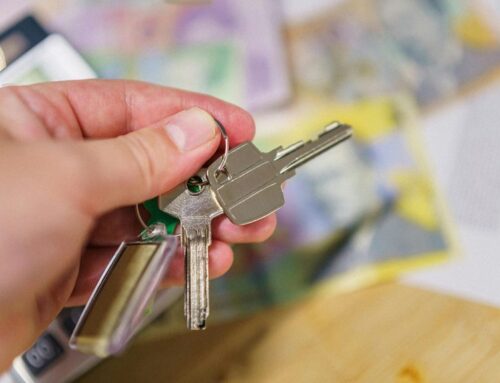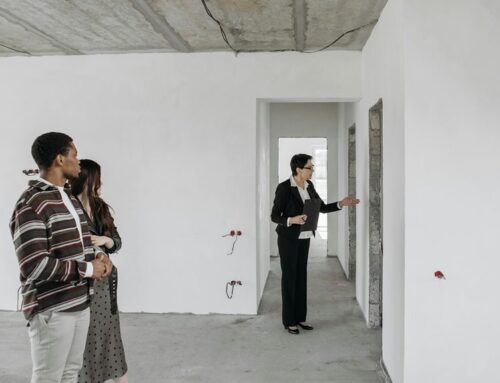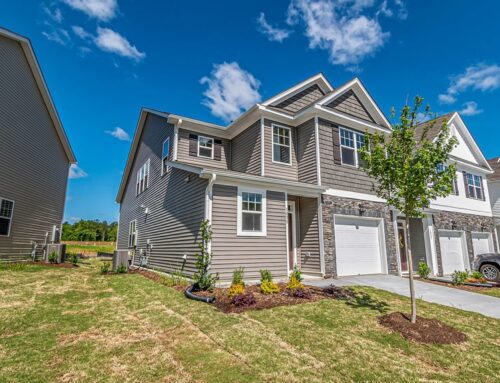Considering buying a foreclosed property? It can be a great investment, but there are risks. Research the property’s history to uncover any issues. Before bidding, consider factors like the property’s condition and location. Remember, besides the purchase price, factor in additional costs like repairs and legal fees. To boost your chances of winning a bid, strategize, set a budget, and be prepared. Want to learn more about the risks, rewards, common mistakes, and successful bidding strategies related to buying foreclosed properties?
Foreclosure Process Overview
As we investigate the foreclosure process overview, it’s essential to understand the sequence of events leading up to the auction of a foreclosed property.
The process typically begins with the homeowner falling behind on mortgage payments. After a period of non-payment, the lender issues a Notice of Default, informing the homeowner of the impending foreclosure. If the homeowner doesn’t remedy the situation, the property moves into the auction phase.
At the auction, the property is sold to the highest bidder, often for an amount that covers the outstanding debt. This auction can be a public sale or conducted online, depending on the state’s foreclosure laws. Understanding this process is pivotal for anyone considering purchasing a foreclosed property.
Types of Foreclosure Auctions
Let’s talk about the different types of foreclosure auctions you may encounter when looking to purchase a foreclosed property. Understanding the auction types, the bidding process, and some winning strategies can help you navigate the process more effectively.
I’ll break down each aspect to give you a solid foundation for your next foreclosure auction experience.
Auction Types Explained
When it comes to participating in foreclosure auctions, understanding the different types of auctions is essential. There are two main types of foreclosure auctions: judicial auctions and non-judicial auctions.
In judicial auctions, the court oversees the foreclosure process, and the property is sold at a public auction. This type of auction is common in states where foreclosures must go through the court system.
On the other hand, non-judicial auctions don’t involve the court system and are governed by the terms outlined in the mortgage or deed of trust. These auctions typically occur on the property site or at a designated location.
Knowing the differences between these auction types can help you navigate the foreclosure process more effectively.
Bidding Process Overview
Understanding the bidding process at foreclosure auctions involves grasping the different types of auctions available. There are primarily two types of foreclosure auctions: judicial auctions and non-judicial auctions. In judicial auctions, the court oversees the sale, typically in cases where the lender needs court approval to foreclose. Non-judicial auctions, on the other hand, are conducted outside of court supervision and are more common in states that allow power of sale clauses in mortgages. Below is a table summarizing the key differences between the two auction types:
| Auction Type | Supervision |
|---|---|
| Judicial Auction | Court oversight |
| Non-judicial Auction | No court supervision |
Understanding these distinctions can help you navigate the bidding process more effectively.
Winning Strategies Tips
To maximize your chances of success at foreclosure auctions, understanding the different types of auctions available is necessary. There are two primary types of foreclosure auctions: judicial auctions conducted by the court and non-judicial auctions overseen by a trustee or auctioneer.
Judicial auctions typically involve more paperwork and can take longer to finalize, while non-judicial auctions are often quicker and more straightforward. Understanding the specific rules and processes for each type of auction is vital for developing a winning strategy.
Research the requirements and regulations in your area, attend a few auctions to observe, and consider seeking guidance from experienced investors. By familiarizing yourself with the nuances of each auction type, you can position yourself for success in buying foreclosed properties.
Due Diligence Checklist
Let’s talk about the Due Diligence Checklist when buying foreclosed properties.
One key aspect is the importance of conducting a thorough title search to uncover any liens or issues that may affect your ownership.
Additionally, I’ll share some essential property inspection tips to help you make informed decisions before making a purchase.
Title Search Importance
When purchasing a foreclosed property, conducting a title search is an essential step in your due diligence checklist. This search helps uncover any existing liens, unpaid taxes, or other claims against the property that could become your responsibility once you become the new owner. By conducting a thorough title search, you can verify that you’re aware of any potential legal issues tied to the property.
This step is vital in protecting your investment and avoiding unforeseen complications down the line. A clear title is necessary for a smooth transfer of ownership and peace of mind. Make sure to enlist the help of a professional to assist you in this process and verify that the property’s title is clean.
Property Inspection Tips
Examining a property thoroughly before purchasing is important to make sure you make an informed decision. When inspecting a foreclosed property, start by checking for any structural damage, such as cracks in the walls or foundation. Look for signs of water damage, like mold or mildew, which could indicate underlying issues. Test all appliances and confirm they’re in working condition.
Don’t forget to inspect the roof for any leaks or missing shingles. Check the plumbing and electrical systems for any potential problems. It’s also wise to hire a professional inspector to provide a thorough evaluation. By conducting a detailed property inspection, you can uncover any hidden issues and make a more informed purchasing decision.
Financing Options for Foreclosures
Exploring various financing options is essential when considering purchasing a foreclosed property. When it comes to financing a foreclosure, there are several routes you can take.
One option is to secure a traditional mortgage through a bank or lender. This route may offer competitive interest rates and terms, but keep in mind that the property’s condition might affect the loan approval process.
Another option is a renovation loan, which can help cover the purchase price and renovation costs in one package. Additionally, you could consider a cash purchase if you have the funds readily available.
Each financing option has its pros and cons, so carefully evaluate which one aligns best with your financial situation and goals.
Risks and Rewards Analysis
Taking a closer look at the risks and rewards associated with purchasing a foreclosed property allows for a more informed decision-making process. When considering buying a foreclosed property, it’s pivotal to weigh the potential benefits against the possible drawbacks. Here’s a quick overview to help you make a balanced assessment:
| Rewards | Risks | Analysis |
|---|---|---|
| Opportunity for savings | Property may require significant repairs | Consider the overall cost savings against potential renovation expenses |
| Potential for quick equity growth | Limited viewing opportunities before purchase | Conduct thorough research and inspections to mitigate risks |
| Diverse options in various locations | Long process with potential legal complications | Seek professional advice to navigate legal complexities |
Common Mistakes to Avoid
After evaluating the risks and rewards of purchasing a foreclosed property, it’s crucial to be aware of common mistakes to avoid in this process.
One common mistake is underestimating the total cost involved. Beyond the purchase price, consider repairs, maintenance, and potential legal fees.
Another pitfall is neglecting a thorough inspection. Don’t skip this step to uncover any hidden issues that could turn into costly problems later on.
Additionally, rushing into a purchase without proper research can lead to regrets. Take your time to understand the property’s history, market value, and neighborhood.
Tips for Successful Bidding
To increase your chances of successfully bidding on a foreclosed property, it’s essential to strategize and prepare. Start by researching the property thoroughly, including its market value, condition, and any liens or back taxes. Set a budget and stick to it during the auction.
Prioritize properties that align with your investment goals and have potential for a good return. Attend auctions prepared with financing in place and be ready to act quickly. Stay calm and avoid getting caught up in bidding wars that exceed your budget. Remember to factor in additional costs like repairs and renovations.
Lastly, be patient and persistent, as finding the right property at the right price may take time and effort.
Conclusion
To sum up, buying foreclosed properties is like a thrilling roller coaster ride – full of ups and downs, twists and turns. It’s a high-stakes game that requires careful planning, research, and a bit of luck. But with the right strategy and diligence, the rewards can be well worth the risks. So buckle up, hold on tight, and get ready for an exhilarating adventure in the world of foreclosures!
“Meet the team that’s dedicated to making home sales simple. About Us today.”
Explore Our Story











